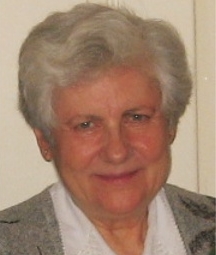Edit Sántáné-Tóth
He graduated from the second year of the "Szeged School" started by László Kalmár in 1957 as a computer applied mathematician; during his university years he learned to program on the M-3 machine of the MTA Cybernetics Research Group (KKCS). After spending 1 year at the successor institution, the MTA Computer Center (SZK), he worked for 9 years at the Danube Iron Works (DV) on the development of industrial applications.
After that, he worked as a software developer and researcher at the Infelor System Technology Company, its successor, the Computer Science Research Institute (Számki), the Theoretical Laboratory (ELL) of the Computer Science Coordination Institute (SZKI), and then at IQSOFT Intelligent Software Development, Manufacturing and Sales Co. Ltd.
At Számki, he participated in the Structured Abstract Models (SAM) research initiated by Bálint Dömölki. At SZKI, as the head of the Application Department of the Theoretical Laboratory, he participated in the development of (MProlog-based) expert systems and tools.
His areas of interest include: history and techniques of artificial intelligence (AI), Prolog, expert systems, uncertainty management, semantics, ontology, and decision support systems.
Until 1990, he wrote several summary works on the domestic developments, research and applications of MProlog, expert systems, and then artificial intelligence.
He was a member of the board of the Artificial Intelligence Department of the National Institute of Statistics of Hungary for 25 years. As secretary, he organized the seminar series of the Hungarian Institute of Statistics-Accounting-NJSZT entitled “Theoretical and Practical Questions of Programming” for 6 years from 1979. The average number of students at these weekly seminars is 70-100 (including colleagues from the countryside and neighboring states). The friendly and professional discussions after the lectures proved to be a very good workshop for those interested in current AI techniques and applications at the time.
After his retirement, from 1993 he regularly taught at ELTE (until 2012), Dunaújváros University (DUF, until 2013), and Óbuda University (ÓE) and its predecessor institutions (until 2016). He also taught at other universities and colleges for several years. He wrote numerous educational materials and textbooks. He is the holder of college educational commemorative plaques, guest lecturer and honorary college/university associate professor titles.
In studies and conferences, he chronicled the beginnings of higher education in computer science in Hungary (which was also published in book form with the same title (with many contributors), Typotex Publishing House, Budapest, 2012). Later, he also chronicled the history of the first applications of domestic computer science in ferrous metallurgy.
From 2016 until his death, he led the People section of the NJSZT Informatics History Forum (iTF) Database.
His awards: Academic Career Award (shared, 1975); László Kalmár Memorial Medal (NJSZT, 1984); State Award (shared, 1988); Lifetime Achievement Award (NJSZT, 2008); László Kozma Memorial Medal (BME Faculty of Electrical Engineering and Informatics, 2011); János Neumann Memorial Plaque (ÓE, 2014).
- professional biography
- CV (2021)
- publication list
- studies
- video portrait
From music school to expert systems In: Artificial intelligence and its frontiers – interviews with researchers (ed.: Ferenc Kömlődi). Akadémiai Kiadó, Budapest, 2007, pp. 175-182.
- Hungarian Artificial Intelligence Bibliography (1996.)
- The beginnings of higher education in computer science in Hungary
- The Operations Research Group of the Danube Iron Works, as the first smelter of domestic ferrous metallurgy applications
- SZKI-Számalk-NJSZT seminar series (1979-1985)
- SZKI ELL expert system projects (1986)
- The Creative Man - Portrait film of Edit Sántáné-Tóth (2020)
- Memorial conference: In memoriam Edit Sántáné-Tóth (2022.)
- Family: two children, five grandchildren and two great-grandchildren. (2021 announcement.)
- He originally trained for a musical career (for 4 years at the Békéstarhos Music School). In 1955, he won first prize in piano at the Békés County Cultural Competition, and then regularly performed at university celebrations.
- He has been a member of the APBE public benefit patient association since its founding in 2001, and was its president between 2006 and 2019.
- He compiled a collection of his father, Kálmán Tóth (a locksmith and music enthusiast), about his life full of challenges and innovations.
Created: 2015.11.22. 19:39
Last modified: 2024.05.09. 18:08

